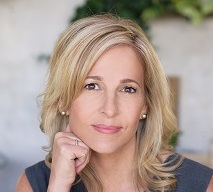Trends in Health and Wellness 2016 12/30/2015
In 2014, Women’s Marketing partnered with Rodale to research the emerging consumer wellness trend. Based on our findings, we predicted that the wellness mindset would creep into all aspects of everyday life and emerge as one of the preeminent consumer trends of the decade. Today, the global wellness industry, which includes ten sectors including, beauty, vitamins and supplements, healthy eating, weight loss, fitness, alternative medicine, and wellness travel is estimated at roughly $3.4 trillion. And with a growing obesity and chronic disease crisis in the U.S., analysts believe that double-digit annual growth rates in the wellness sector will continue as more people proactively shift dollars toward preventative care, changing the way they eat, exercise, travel, and live.
As 2016 approaches, we see opportunity for marketers to meet the needs of health focused consumers and have identified key areas of growth within the category.
Seeking Informational Content
According to Pew Research, 72% of internet users say they looked online for health information of one kind or another within the past year. This includes searches related to serious conditions, general information searches, and searches for minor health problems. In fact the third most popular activity people do online—right behind checking email and using a search engine—is looking for answers to health questions. Brands should consider a robust informational content program to aid in discovery and build trust with consumers.
Consumers are approaching health from a holistic point of view with the understanding that feeling good includes both body and mind. Expect to see consumers take a more active role in behavioral health, which may range from personal care, such as spa services, meditation and happiness coaching apps and podcasts, to corporate mental health programs designed to help employees better manage stress and work/life balance.
Boutique Fitness
We’ve seen an increase in boutique fitness studios that offer personalized services in a small community setting. Spinning, cross-fit, yoga, indoor surfing, and other specialized services are outperforming traditional big-box gyms. These small classes offer consumers the opportunity to try different forms of exercise without committing to a long-term membership and the flexibility to participate in different forms of exercise as frequently as they choose. New services, such as Class Pass, offer consumers the ability to buy a monthly pass that allows them to attend an unlimited number of classes at several participating studios.
Personalized Diets
After years of fad diets, consumers are no longer turning to one-size-fits-all nutritional programs. As scientists dive deeper into the way different individuals metabolize food, we can expect to see tools that help consumers adopt personalized diets for both weight loss and to manage chronic diseases such as diabetes. We will be watching Oprah Winfrey’s Weight Watchers investment closely, to see if she can buck the trend.
Wearable Tech
Last year, wearable fitness trackers were on the top of everyone’s holiday wish list. This year, the trend continues as consumers use trackers and apps to motivate them to exercise, share their success with friends, and monitor their health. As technology improves, consumers will upgrade, investing in new products because they’ve already experienced the benefits of integrating these products into their lives.
Increasingly, consumers are demanding “clean” food, which is generally accepted to mean foods that are free of chemicals and made with as few ingredients as possible. At the same time, there is a countertrend, as foods fortified with protein, omegas, probiotics, or vitamins that offer additional health benefits are also growing in popularity. Expect to see more food and beverage items with ingredients that can help mitigate health conditions and increase overall health and wellness.
Organic Beauty
Almost half of female consumers say they are currently or actively planning to purchase natural or organic beauty and personal care products within the next year. Women are concerned by reports that chemicals in cosmetics, hair, and bath products may be hazardous to their health and the health of their families. As more all-natural emerging brands enter the market, major brands are re-thinking their formulations and offering chemical-free options.
This year was a pivotal year for health and wellness. What we identified as an emerging trend has become mainstream, affecting the lives of millions of consumers worldwide. As Millennial consumers, many of whom are highly engaged in this category, approach their peak earning years, we can expect to see increased interest and growth in the health and wellness space.
Reaching them through content and social platforms, providing cutting-edge, technology-driven products and services, and personalizing their experience are key to building trust and longevity with these consumers. Women’s Marketing has proven expertise in reaching women when, and where, they are most receptive to your message.
- Vitamin, Diet & Sports Nutrition: January 10-14, 2016 at the Palms Casino Resort (Las Vegas, NV)
- Cosmetics, Fragrance & Bath: January 17-21, 2016 at the Hyatt Regency New Orleans (New Orleans, LA)
- Cough/Cold, Analgesics & Allergy: February 15-19, 2016 at the Hyatt Regency Jacksonville Riverfront (Jacksonville, FL)


Women’s Marketing is the leading media strategy, planning, and buying organization for emerging and high-growth brands. We offer a deep understanding of how women consume, engage, and take action with media, with unmatched expertise in beauty, health, fashion, food, and beverage. Every Women’s Marketing client enjoys the benefits associated with the significant purchasing scale we achieve through the vast network of companies we serve and our strong relationships with global media leaders.